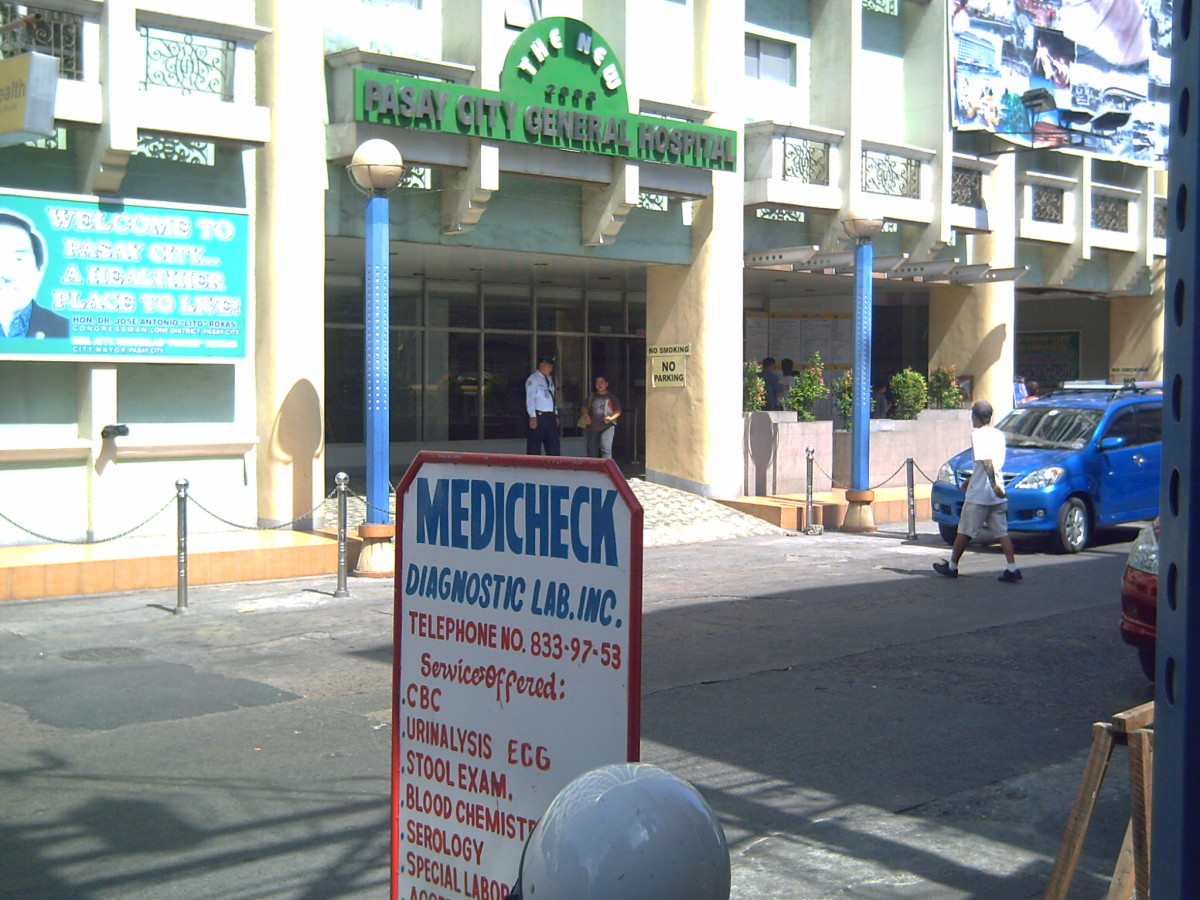An Indian Alternative to Obamacare
Lowering Costs With Sound Business Principles, Rather Than Reducing Costs by Denying Service
November 22, 2009
While the President and his hard left allies in Congress struggle to get rid of our present, less than perfect health care payment system, and replace the entire United States health care system by forcing a failed European socialist model on the nation, Indian Dr. Devi Shetty and his Narayana Hrudayalaya Private Ltd hospital company is using the free market system to deliver low cost, high quality care.
According to an article in the November 21-22, 2009 Weekend Edition of the Wall Street Journal, entitled The Henry Ford of Heart Surgery, on page A1, Dr. Shetty's hospital charges U.S. $2,000 for the same open heart surgery that costs $20,000 to $100,000 in a U.S. hospital.
This is low cost, not low quality, as evidenced by the fact that the death rate for patients who die within 30 days of the surgery in his hospital is 1.4% compared to a rate of 1.9% in U.S. hospitals.
Not only are Dr. Shetty's fees and death rates lower than comparable surgeries in U.S. hospitals but he actually makes a higher profit than U.S. hospitals.
His Narayana Hrudayalaya Private Ltd hospital showis an after tax profit of 7.7% versus an average after tax profit for U.S. hospitals of 6.9%.
How Does Dr. Shetty Do This?
The secret to Dr. Shetty's success is basically due to three things:
- Economies of Scale which allow his company to make up in number of served what he loses from lowering prices as well as the ability to spread his fixed costs over a larger amount of output.
- Specialization which allows his surgeons to concentrate on one or two types of surgery and become very good at it.
- Managing costs which involves keeping all costs under control.
Each of these is explained in more detail below.
Economies of Scale
Learning from mass production techniques in manufacturing, Dr. Shetty's company relies on large volume to achieve economies that smaller operations are unable to realize.
At his Narayana Hrudayalaya Hospital in Bangalore, India he has beds for 1,000 patients compared to the average U.S. 160 bed capacity of U.S. surgical hospitals.
Like other capital intensive industries, such as steel or automobiles, greater volume allows the high fixed costs to be spread over a much larger output thereby lowering the fixed cost per unit.
Further, just as companies like Wal-Mart and Costco can use their huge buying power to get favorable pricing from suppliers, so too can Dr. Shetty's operation get volume discounts on supplies and equipment.
Specialization
Rather than performing a number of different types of heart surgeries, or other procedures, the doctors working for Narayana Hrudayalaya Private Ltd. each concentrate on one or two procedures.
This constant repetition allows them to become very proficient with these procedures and enables them to perform them quickly and accurately the first time thereby enabling them to perform more surgeries with higher quality.
According to the WSJ article, the 42 cardiac surgeons at the Narayana Hrudayalaya Hospital in Bangalore performed 3,174 cardiac bypass surgeries in 2008 while the U.S. leader in this area, the Cleveland Clinic, only did 1,367 bypass surgeries. And cardiac bypass surgeries are only one type of surgery in which Dr. Shetty's hospital group outperforms their U.S. counterparts in terms of volume.
Managing costs
Dr. Shetty also keeps a close watch on costs. As any beginning finance or economics student will tell you, there are three ways to increase bottom line profit and these are:
- increase revenue while holding costs constant
- decrease costs while holding revenue constant
- a combination of increasing revenue and cutting costs
Dr. Shetty has an advantage here in that, for the most part, it is his patients, and not the government or insurance companies, who pay for his hospitals' services.
In order to get the volume of patients he needs to fill his hospitals, especially in a low income nation like India, he has to keep his prices low and competitive. This means that he has to watch all of his costs closely.
A problem with third party payers like the government or insurance companies is that the patient doesn't care about the cost and the government or insurance company doesn't have time to comparison shop or negotiate with each provider for each patient.
The result is a system where the third party payer publishes a schedule of what they will pay for each procedure and, so long as this is profitable for the provider, the provider has no incentive to cut costs since patients have no choice but to use their assigned physician/hospital or go without care thus giving the physician/hospital a guaranteed income from the third party payer.
Outsourcing Medical Care to India
n a previous Hub, Medical Tourism - a Growing Niche Market, I described the growing practice of people traveling to the developing world in search of affordable medical care.
That Hub also described how doctors in places like India, Thailand and Mexico, to name a few, many of whom received their medical education in universities in Western Europe and North America, were setting up practices to serve these medical tourists.
According to this article, the medical tourism business is growing by leaps and bounds as they are projecting that next year six million Americans will be seeking medical services abroad as opposed to the 750,000 Americans who went abroad for medical services in 2007.
And, if Obamacare passes, this number will only increase assuming Americans can afford to pay for such care after being taxed to death paying for the multi-trillion dollar spending projects that the Administration is trying to enact.
However, in addition to making the cost of medical care affordable for the average person, Dr. Shetty and his company are also working to cut the travel costs as well.
Outsourcing Works in Both Directions
One of the little publicized facts about outsourcing is the fact that it is a two way street. Of course it is both easier to find and report as well as being a more dramatic story to cover the closing of a business and the laying off of its workers due to the jobs being exported to places like India, than to report on the jobs created in the U.S. due to outsourcing.
However, as one reporter looking at the other end while visiting a call center in India. The workers and building were Indian, while the telephone lines, computers, software, training, support and even the bottled water in the cafeteria all came from the U.S.
Also, once companies in places like India get started in the outsourcing business they look to grow and expand beyond the entry level services they started with. Much of this high end (and high paying) work ends up being outsourced back to the United States and Europe.
Next Project - A Hospital for Americans in the Cayman islands
Currently Dr. Shetty is in the process of planning the building of a 2,000 bed hospital in the Cayman Islands in the Caribbean an hour's flight from Miami, Florida, where he will offer medical services for 50% or less than they cost in the U.S.
Lessons for the United States
n my Hubs, A Jobless Recovery and A Jobless Recovery - Part II, I stressed the fact that, for the economy to both recover, as it is doing now, AND grow so that jobs can be created for the over 10% of the American workers who have lost their jobs, we will have to provide incentive for investors and businesses to invest and grow the economy.
This will require reducing taxes, cutting government spending and reducing regulations. The opposite of what our current government is doing now.
Logically, Dr. Shetty should have built his hospital in Miami, Florida rather than in another nation a hour's plane ride away.
However, even without the passage of Obamacare or some watered down version of the thousand page plus bills currently before Congress, the cost of complying with the numerous existing regulations alone would have driven up his costs and wiped out much of the savings he now offers patients in India.
The existence of Dr. Shetty's hospital in the Cayman Islands will be a boon to Americans without employer paid health care as well as Medicare recipients who are denied treatment by Medicare and are unable to find a doctor to treat them on a self-pay basis.
If Obamacare is passed this hospital and others that will certainly begin to sprout up in other parts of the Caribbean and Mexico (which is looking to expand its infant Medical Tourism sector) will enable Americans to continue to receive quality health care at affordable prices despite the certain destruction of our own system by Washington politicians and bureaucrats.
New jobs will be created but they will be in the small neighboring nations to the south of us, and not in the United States.
Other Economic Mistakes by U.S. Government
There are also a couple of other facts in the article that do not portend well for the U.S. economy and these deal with Dr. Shetty's attention to costs - big and small.
In their heart and other surgeries his hospitals use a large number of sutures. While the cost of sutures are small relative to total costs and revenues, Dr. Shetty noticed that he was paying $100,000 per year to the American company, Johnson and Johnson, for sutures at his hospital in Bangalore. Today, he purchases the same quality sutures from Centennial Surgical Suture Ltd. in Mumbai, India for $50,000.
U.S. taxes and regulations contribute to helping to make Johnson and Johnson sutures more expensive than those of Asian competitors.
Similarly, the doctor currently purchases his expensive medical equipment from General Electric, a major U.S. producer of medical equipment. However, he can get same equipment of the same quality from Chinese companies for a much lower price. But, at the moment, the Chinese do not have sufficient local service companies to provide needed service and maintenance in a timely manner.
However, once the Chinese companies get a large enough local service base he will switch and General Electric will lose both the initial sales of the equipment as well as the parts needed for ongoing repair and maintenance.

Ronald Reagan Was Right
Again, American taxes and regulatory compliance are helping to drive up costs which result in U.S. companies business which translates into less of a need to hire more workers.
This article and the current health care fiasco being played out in Washington provide a perfect illustration of former President Ronald Reagan's famous saying:
The Government is the problem, NOT the solution.
Links to My Other Hubs on Health Care
- Including Health in Retirement Planning
While practicing healthy habits throughout life is important, some financial planners are now suggesting that health be a consideration in retirement planning as well. Generally we tend to look to financial... - Medical Insurance Strategies for Freelance Journalists and Others
One of the perceived disadvantages of being self employed, as opposed to working for a large employer, is the lack of employer paid medical coverage. Among the first things that come to the mind of a... - Health Savings Accounts - A Solution to the Health Care Crisis
Health Savings Accounts (HSAs) are special savings accounts that are created in combination with a high deductible health insurance plan. Like traditional IRA (Individual Retirement Account) plans, money... - How Health Savings Accounts Can Reduce Health Care Costs
In a previous Hub, Health Savings Accounts - A Solution to the Health Care Crisis. I described how Health Savings Accounts work. In the interests of space and desire to focus on how the Health Savings... - How Tax Cuts Work
According to October 11, 2006 news reports, the Federal deficit (the amount by which government spending exceeds tax and other government revenues) has shrunk to its lowest amount in four years. In addition...











